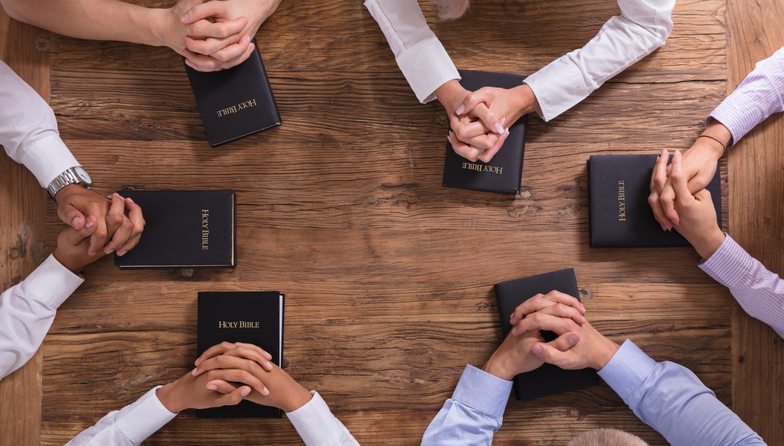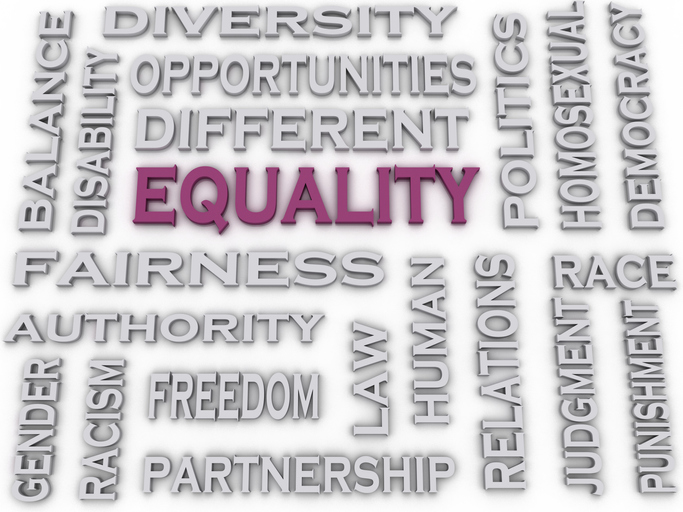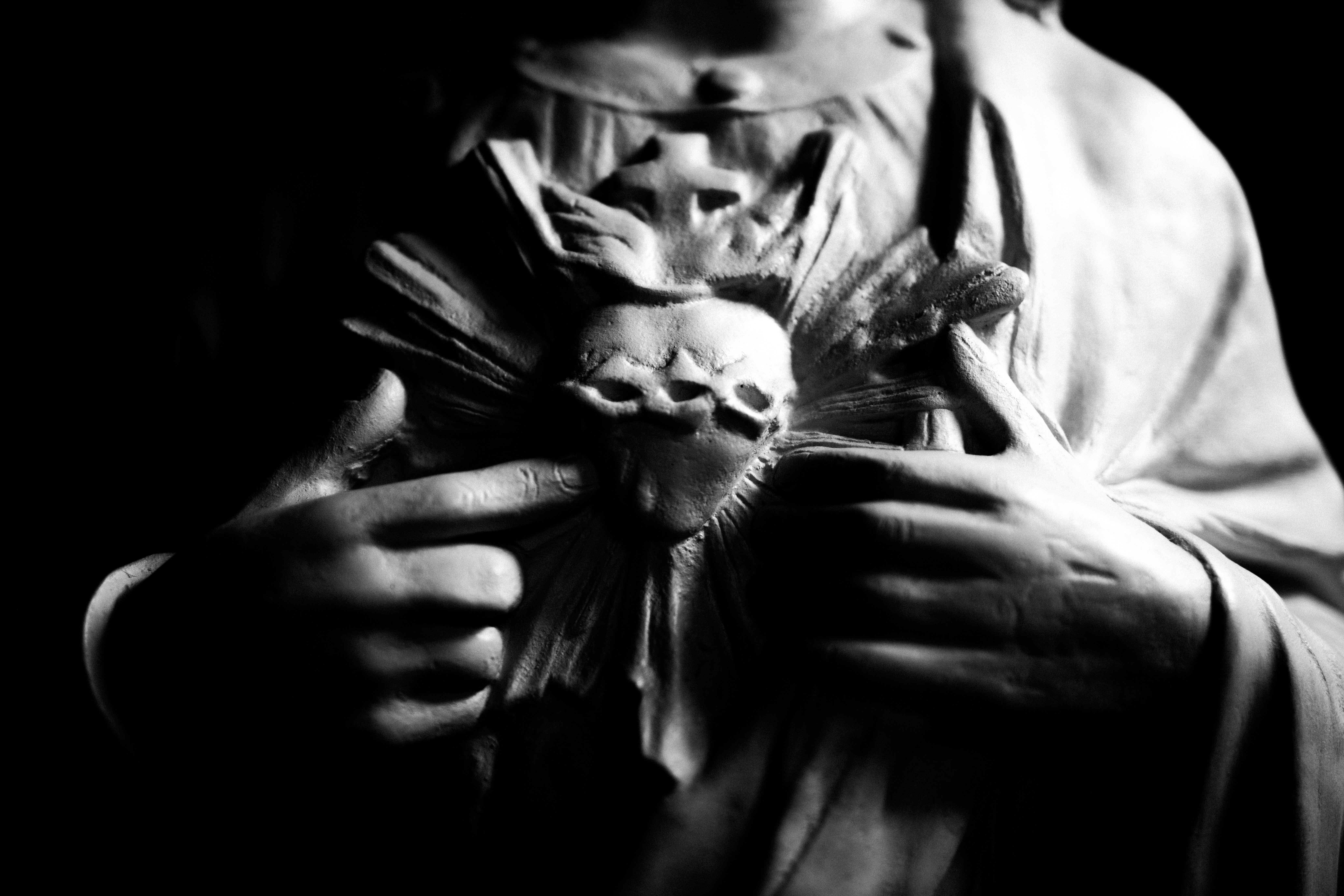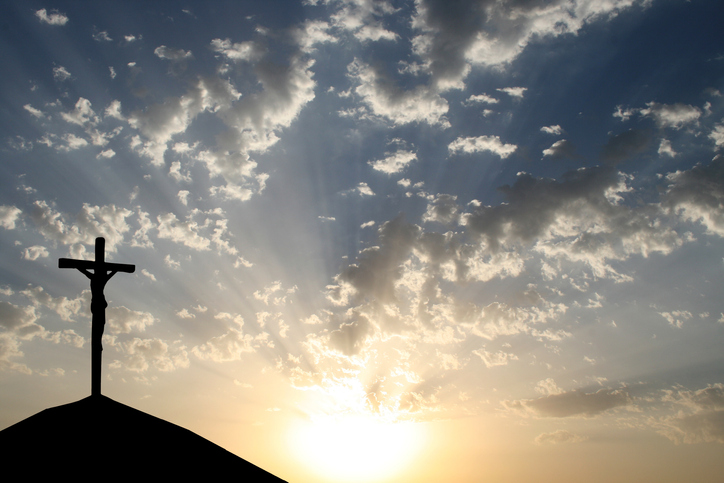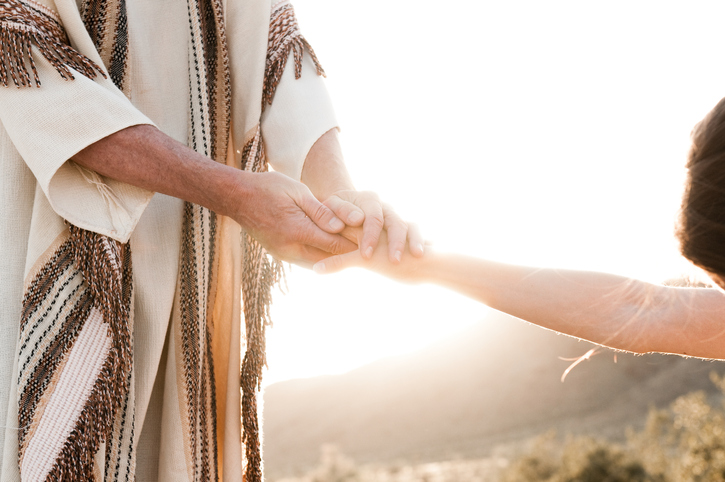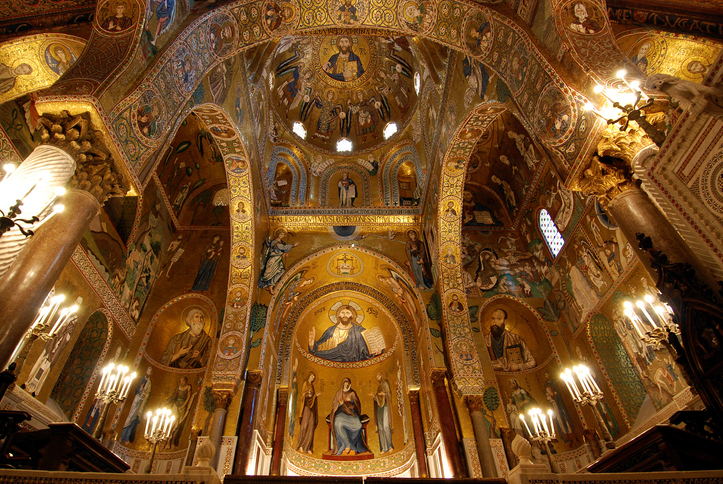Today’s Responsorial is one of the most poetic and well-known Psalms. I remember reciting it as part of an English assignment in high school. “The Lord is my Shepherd; I shall not want.” And it goes on and on to describe verdant pastures, restful waters, abundant tables, anointed heads, and overflowing cups.
Surely David was in a very good mood when he wrote this because my life surely doesn’t look like that! (Unless I’m on a Hawaiian vacation, maybe…but let’s get real.) The part about walking in a dark valley sounds more like it. So many uncertainties, so many unknowns, so much wondering how I will do this or when I will have time to do that.
But maybe it’s not so much about whether my life is full of picturesque scenery and rich foods, but rather the second part of each of these phrases: I shall not want. He gives me repose. He leads me. He refreshes my soul. You are at my side. You give me courage.
It is YOU who are spreading the symbolic table, YOU who are anointing my head, YOU who are the source of the goodness and kindness that follow me.
Now THAT is something I can chew on, because despite the uncertainties, the unknowns and the wondering, I DO know that I will never go without necessities, that he will always give me the opportunity to rest in Him, He will consistently guide me, He will refresh me, stay with me and grant me courage.
The self-inflicted troubles come when I try to do it all on my own. I try to take the reins of my own life. After all, it’s mine to live, right? If I want something, I push, push, push, trying to obtain it, often amid angst and frustration. Why don’t I just ask Him if that’s what He wants? When my kids or my financial situation or my family problems build upon my heart, I want to explode and end up crying like a spoiled child. Why don’t I just place them in His hands and see what wonderful things unfold?
So often, I try to “lord it over” my life, as the First Reading mentions. But in the end, I am just making it harder for myself.
Lord, show me, lead me, guide me. Grant me that assurance, that rest, that courage that I need to follow you in all things, knowing that you will make my cup overflow.

Tami grew up in Western Michigan, a middle child in a large Catholic family. She spent early young adulthood as a missionary in Mexico, studying theology and philosophy, then worked and traveled extensively before finishing her Bachelor’s Degree in Western Kentucky. She loves tackling home improvement projects, finding fun ways to keep her four boys occupied, quiet conversation with the hubby and finding unique ways to love. She works at Diocesan, is a guest blogger on CatholicMom.com and BlessedIsShe.net, runs her own blog at https://togetherandalways.wordpress.com and has been doing Spanish translations on the side for almost 20 years.

